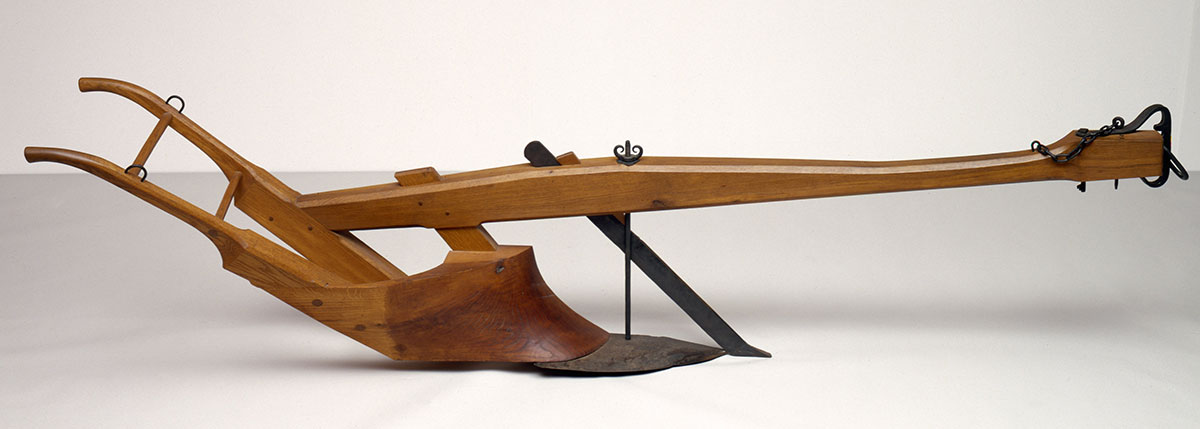Though people often think of Jefferson as an inventor, he more appropriately is described as an innovator. Rather than creating original items and ideas, Jefferson improved on those items already in existence. For instance, although Jefferson did not invent the copying machine on which he wrote his correspondence, he did write one of the polygraph's makers, Charles Willson Peale, to suggest improvements. Nonetheless, Jefferson is credited with at least one invention: the moldboard of least resistance.
Aside from his own inventions, Jefferson delighted in the innovations of others and incorporated good ideas into his daily life whenever possible. He was the United States' first commissioner and inspector of patents and was therefore able to keep abreast of new developments in technology. One inventor with whom Jefferson corresponded in this role was Eli Whitney, who sought and gained a patent for the cotton gin. Jefferson later wrote that Whitney was "a mechanic of the first order of ingenuity."
THE MOLDBOARD OF LEAST RESISTANCE

During his tenure as minister to France, Jefferson observed European plow designs and found them to be deficient—so deficient that in 1788, he recorded his plans to improve the plow by redesigning its moldboard. Made of wood, the moldboard is the part of the plow that lifts up and turns over the sod cut by the iron share and colter.
Six years later, in 1794, a Monticello plow was equipped with the wooden moldboard that Jefferson had designed. Jefferson declared that the moldboard was "mathematically demonstrated to be perfect" and could be duplicated by the "coarsest workman."
Despite the precision of the moldboard plow, few farmers across the country actually used it, for plows fitted with iron moldboards were quickly replacing wooden models. Beginning in 1814, however, Jefferson did have his moldboards cast in iron.

Jefferson's drawing for the Moldboard Plow of Least Resistance
Jefferson never tried to patent his design, but he did win acclaim for it. James Mease featured it in the Domestic Encyclopedia (Philadelphia, 1803), and the French Society of Agriculture awarded Jefferson its gold medal and membership as a foreign associate. Jefferson also received a commendation from the British Board of Agriculture, and in 1820, the Italian Agricultural Society in Florence conferred an honorary degree upon "Excellenza Mr. Thomas Jefferson."
Image Credits
- Reproduction of Jefferson's Moldboard Plow of Least Resistance.